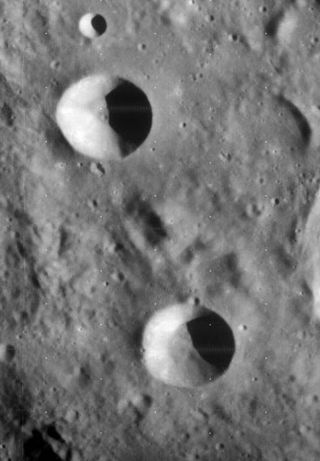Greco-Roman
| |||||||||||||||||||||||||
| |||||||||||||||||||||||||
| |||||||||||||||||||||||||
| |||||||||||||||||||||||||
| |||||||||||||||||||||||||
| |||||||||||||||||||||||||

Year 405 (CDV) was a common year starting on Sunday of the Julian calendar. At the time, it was known as the Year of the Consulship of Stilicho and Anthemius. The denomination 405 for this year has been used since the early medieval period, when the Anno Domini calendar era became the prevalent method in Europe for naming years.
Hypatia was a Neoplatonist philosopher, astronomer, and mathematician who lived in Alexandria, Egypt, then part of the Eastern Roman Empire. She was a prominent thinker in Alexandria where she taught philosophy and astronomy. Although preceded by Pandrosion, another Alexandrian female mathematician, she is the first female mathematician whose life is reasonably well recorded. Hypatia was renowned in her own lifetime as a great teacher and a wise counselor. She wrote a commentary on Diophantus's thirteen-volume Arithmetica, which may survive in part, having been interpolated into Diophantus's original text, and another commentary on Apollonius of Perga's treatise on conic sections, which has not survived. Many modern scholars also believe that Hypatia may have edited the surviving text of Ptolemy's Almagest, based on the title of her father Theon's commentary on Book III of the Almagest.

Eratosthenes of Cyrene was an Ancient Greek polymath: a mathematician, geographer, poet, astronomer, and music theorist. He was a man of learning, becoming the chief librarian at the Library of Alexandria. His work is comparable to what is now known as the study of geography, and he introduced some of the terminology still used today.
Monophysitism or monophysism is a Christological doctrine that states that there was only one nature—the divine—in the person of Jesus Christ, who was the incarnated Word. It is rejected as heretical by the Catholic Church, Eastern Orthodox Church, Anglicanism, Lutheranism and all mainstream Protestant denominations, which hold to the dyophysitism of the 451 Council of Chalcedon- as well by Oriental Orthodoxy, which holds to miaphysitism.
Pope Felix III was the bishop of Rome from 13 March 483 to his death. His repudiation of the Henotikon is considered the beginning of the Acacian schism. He is commemorated on March 1.
Acacius served as the Ecumenical Patriarch of Constantinople from 472 to 489. He was practically the first prelate in the East and was renowned for his ambitious participation in the Chalcedonian controversy. His controversial attempts at healing the theological divisions led to the Acacian schism and his being condemned by the Chalcedonian churches. He is revered as a saint in Oriental Orthodoxy.
Fravitta, also known as Fravitas, Flavitas, or Flavianus II, was the patriarch of Constantinople (489–490).
Theon of Alexandria was a Greek scholar and mathematician who lived in Alexandria, Egypt. He edited and arranged Euclid's Elements and wrote commentaries on works by Euclid and Ptolemy. His daughter Hypatia also won fame as a mathematician.

Theon Junior is a lunar impact crater that is located just to the west-southwest of the crater Delambre. It forms a matching pair with Theon Senior, only a couple of crater diameters to the north-northwest. The crater is circular and bowl-shaped, with a small floor at the bottom of the high, sloping interior walls. It is named for Theon of Alexandria, a 4th-century Greek astronomer and mathematician. The crater is from the Eratosthenian period, which lasted from 3.2 to 1.1 billion years ago. It is 17 kilometers in diameter and the difference in height at its rim and its deepest part is 3,580 meters.
Theon of Smyrna was a Greek philosopher and mathematician, whose works were strongly influenced by the Pythagorean school of thought. His surviving On Mathematics Useful for the Understanding of Plato is an introductory survey of Greek mathematics.

Pope Timothy II of Alexandria, also known as Timothy Ailuros, succeeded twice in supplanting the Chalcedonian patriarch of Alexandria.
Pope Peter III of Alexandria also known as Peter Mongus was the 27th Pope of Alexandria and Patriarch of the See of St. Mark.
Theon may refer to:
Apollodorus of Seleucia, or Apollodorus Ephillus, was a Stoic philosopher, and a pupil of Diogenes of Babylon.
This page is a list of topics in ancient philosophy.
Arius Didymus was a Stoic philosopher and teacher of Augustus. Fragments of his handbooks summarizing Stoic and Peripatetic doctrines are preserved by Stobaeus and Eusebius.

Alexandria is a 2009 historical mystery crime novel by Lindsey Davis and the 19th book in her Marcus Didius Falco series. Set in Egypt and Ancient Rome, the novel stars Marcus Didius Falco, informer and imperial agent. The title refers to the setting where the deaths occur.
Theon of Alexandria was a grammarian who taught at Rome in the reigns of the emperors Augustus and Tiberius. He succeeded Areius in this role, and was succeeded by Apion. He was the son of the grammarian Artemidorus of Tarsus and the head of the school at Alexandria.
Papyrus Oxyrhynchus 119 is a letter from a child, written in Greek and discovered in Oxyrhynchus. The manuscript was written on papyrus in the form of a sheet. The document was written in the 2nd or 3rd century. Currently it is housed in the Bodleian Library.